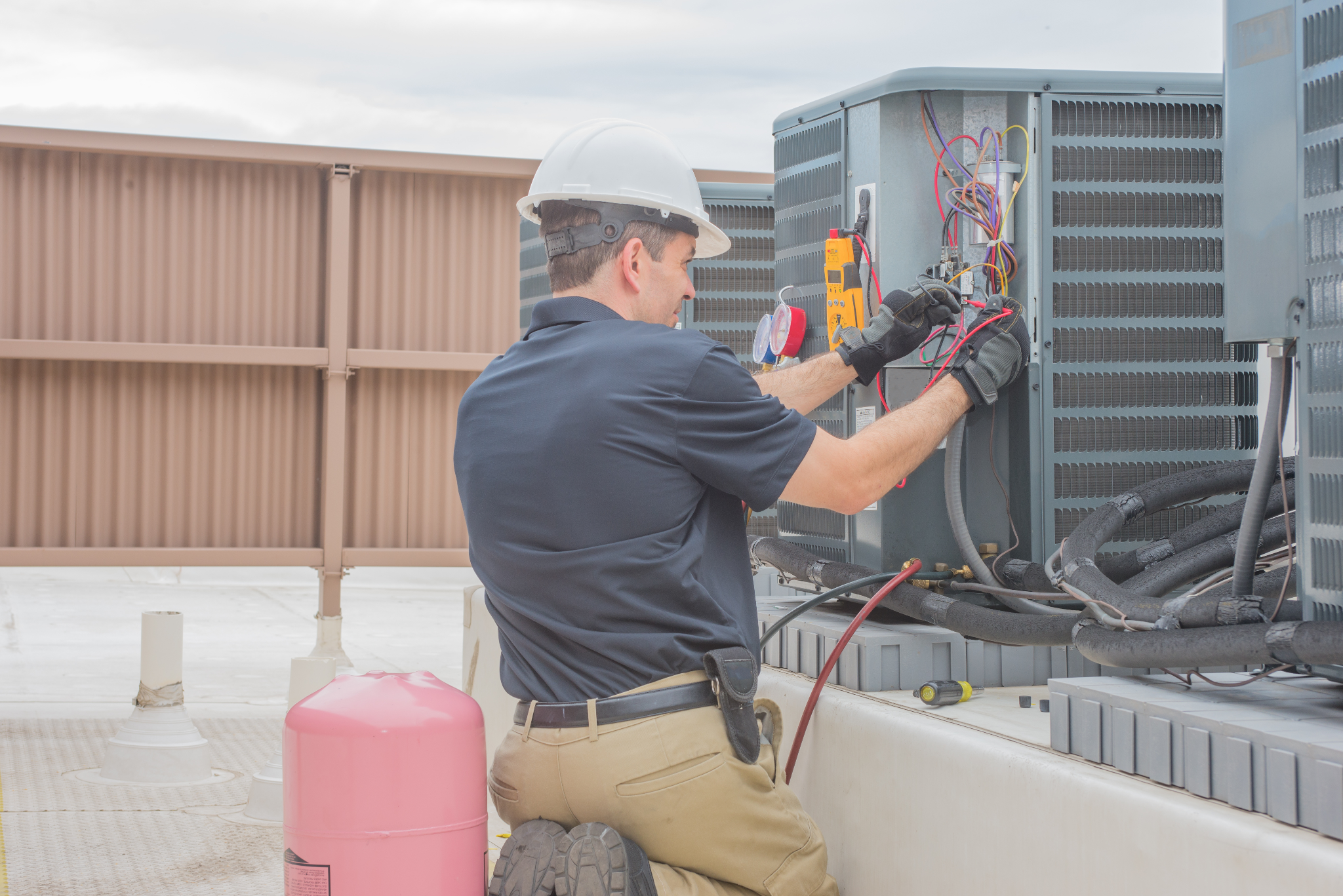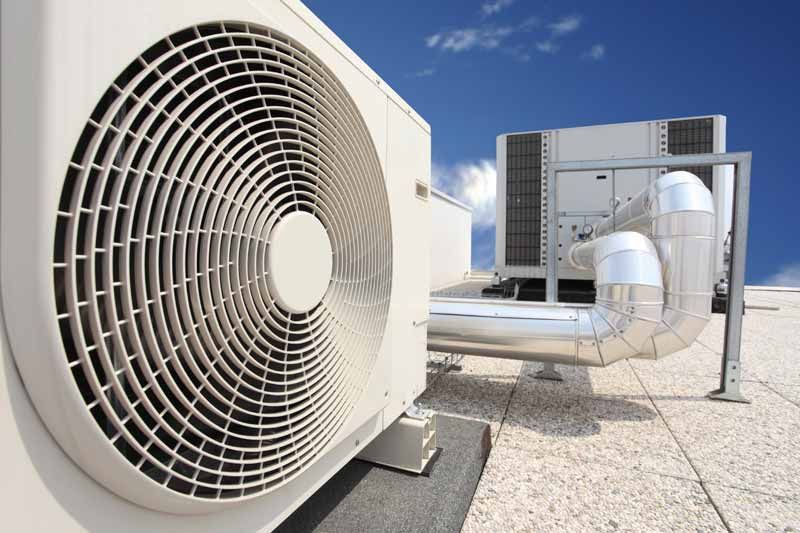What Not to Do During heat pump installation ooltewah tn
What Not to Do During heat pump installation ooltewah tn
Blog Article
Selecting Between a Heatpump and Heating System: Key Factors To Consider for Your A/c Demands
When evaluating heating alternatives for HVAC requires, the choice in between a heatpump and a furnace can be complex. Each system supplies unique advantages tailored to certain climates and power effectiveness goals. Understanding these distinctions is necessary for making an informed option. Secret elements such as setup expenses and ecological impact further complicate the option procedure. Which choice really straightens with one's convenience and sustainability choices? The adhering to areas will discover these factors to consider in detail.
Understanding Warmth Pumps: Just How They Function and Their Benefits
While lots of house owners take into consideration various heating choices, understanding just how heatpump function and their benefits can substantially affect their choice. Heatpump run by transferring heat instead than producing it. In the winter season, they remove warm from the outdoors air or ground and move it inside your home, while in the summertime, they reverse this process, cooling down the home by eliminating warmth outside. This twin capability makes them functional for year-round environment control.One of the key benefits of warm pumps is their power performance. They use considerably less power contrasted to traditional furnace, possibly causing lower energy expenses (ductless mini splits). Additionally, heatpump have a smaller sized carbon footprint, making them an eco-friendly choice. They also require less maintenance than traditional systems, contributing to long-lasting expense financial savings. In general, recognizing the auto mechanics and benefits of heatpump can help property owners make informed decisions concerning their heating and cooling down needs
Discovering Furnaces: Kinds, Operation, and Benefits
Furnaces can be found in various types, including gas, electrical, and oil designs, each with unique operational systems. Recognizing these distinctions is important, as they affect efficiency and heating performance. Additionally, heating systems use countless advantages, such as constant warm output and reliability in chillier environments.
Sorts of Heating systems
Heating unit can differ significantly in design and operation, with heaters being a popular option amongst homeowners. There are numerous types of furnaces, each making use of various gas resources and innovations. Gas furnaces prevail, leveraging natural gas to produce warmth successfully. Electric heating systems, on the various other hand, utilize electrical resistance to generate heat, frequently favored for their uncomplicated installation. Oil furnaces, while much less usual, work in areas with restricted gas gain access to (furnace replacement). In addition, condensing heaters maximize power performance by recording and reusing exhaust gases. Each type operates through a system of warmth exchangers and ductwork to distribute cozy air throughout a home. Recognizing the distinctions in between these furnace types is necessary for educated a/c decisions
Benefits of Furnaces
For home owners seeking reputable warmth throughout cold months, the advantages of heaters are considerable. Furnaces supply regular heating, making certain also temperatures throughout the home. They are particularly effective in extreme chilly, commonly outmatching heatpump in cold conditions. Various kinds, including gas, electric, and oil furnaces, supply flexibility to satisfy varied needs and preferences.Furnaces likewise tend to have lower preliminary installation prices compared to warm pumps, making them a more available alternative for lots of. Their durable layout adds to a longer life-span, with many devices lasting over 15 years with appropriate upkeep. In addition, modern heaters are usually equipped with innovative technology for enhanced effectiveness, which can lead to lowered power expenses. In general, heaters continue to be a dependable option for reliable home heating.

Energy Efficiency: Contrasting Heat Pumps and Furnaces
When comparing energy performance between heat pumps and furnaces, the Seasonal Power Efficiency Ratio (SEER) plays an important role in establishing efficiency. Additionally, a functional cost analysis discloses the long-term monetary implications of each system. Understanding these factors can direct house owners in making informed choices concerning their heating remedies.
Seasonal Power Efficiency Proportion
Power performance plays an essential role in the decision-making procedure between warm pumps and heating systems, especially when thinking about the Seasonal Power Efficiency Proportion (SEER) This statistics steps the cooling efficiency of heat pumps over a whole cooling season, offering a standard means to review performance. Higher SEER rankings suggest greater power effectiveness, converting to reduced energy consumption and decreased utility bills. In contrast, heaters are generally assessed making use of the Yearly Fuel Application Efficiency (AFUE) rating, which reflects heating efficiency. When comparing these two systems, house owners ought to prioritize SEER rankings for heatpump, as they straight effect total power savings and environmental sustainability. An extensive understanding of SEER can notably affect the long-lasting fulfillment and cost-effectiveness of the chosen a/c remedy.
Functional Cost Evaluation
Comprehending the operational costs related to warm pumps and heaters is important for house owners examining their options. Heatpump usually supply higher energy performance, transforming electrical energy into heat with marginal waste. This results in lower monthly energy bills, specifically in modest climates. Alternatively, traditional heaters, specifically gas designs, might have reduced in advance costs however can incur greater operational expenditures over time as a result of sustain costs and efficiency ratings.Moreover, warmth pumps can operate as both home heating and cooling systems, possibly minimizing the need for different cooling and heating systems. While first financial investments for warm pumps might be greater, their long-lasting savings in power performance can make them a much more cost-effective option for many households. Cautious analysis of neighborhood energy prices is vital to identify the very best choice.
Installation Expenses: What to Expect for Each Heating System
Installation prices for heating systems can vary significantly in between heat pumps and heating systems, affecting homeowners' decisions. Warmth pumps normally have higher in advance installation prices, generally ranging from $3,500 to $8,000, depending upon the system dimension and intricacy visit the website of installment. This consists of the outside unit, indoor handling system, and needed ductwork adjustments. On the other hand, heaters have a tendency to have lower first expenses, balancing in between $2,500 and $6,000, which can be appealing for budget-conscious house owners. Installation costs can boost if extensive ductwork is required.Moreover, the choice of gas kind for heaters-- natural gas, lp, or electrical-- can likewise affect installment costs. While heatpump use power effectiveness, their initial financial investment might prevent some purchasers. Inevitably, reviewing setup expenses together with long-term savings and effectiveness will aid homeowners in making informed choices concerning their heater.
Climate Factors To Consider: Which System Does Better in Your Location
How do environment problems influence the efficiency of furnace? The efficiency of heat pumps and heating systems can vary significantly relying on the neighborhood climate. In moderate climates, heatpump stand out by successfully transferring heat from the outdoors air, making them an energy-saving choice. Nonetheless, their efficiency decreases in incredibly cool temperature levels, where they might struggle to remove sufficient warmth. On the other hand, furnaces, specifically gas versions, offer regular and trustworthy warm despite outdoor conditions, making them more suitable in colder regions.In areas that experience milder wintertimes, warm pumps can run successfully year-round, providing both home heating and air conditioning. In contrast, areas with severe winters often profit from the effectiveness of heaters. Inevitably, comprehending the regional climate is necessary when making a decision in between a heatpump and a heating system, as it straight affects their functional effectiveness and overall efficiency.
Upkeep Needs: Long-Term Take Care Of Heat Pumps vs. Furnaces
While both warmth pumps and furnaces call for normal upkeep to guarantee peak efficiency, their details demands and treatment routines differ substantially. Heaters commonly need less frequent focus, with yearly inspections being enough to look for gas leakages, tidy filters, and analyze total performance. Their easier style frequently enables simple repairs.In contrast, heatpump demand biannual upkeep because of their double duty in heating and cooling. This includes cleaning coils, checking cooling agent degrees, visit this site right here and making certain that both the outdoor and indoor systems operate at their best. Additionally, warmth pump upkeep typically involves even more detailed parts, making expert maintenance essential.Neglecting maintenance can bring about lessened performance and increased power prices for both systems. Ultimately, house owners should take into consideration these long-term treatment requirements when choosing between a heatpump and a furnace, as aggressive maintenance can prolong the lifespan and efficiency of either system significantly.
Environmental Influence: Choosing a Lasting Home Heating Option
The environmental influence of furnace is a critical analysis for home owners looking for lasting alternatives. Heat pumps are normally extra energy-efficient than typical furnaces, as they transfer warmth rather than generate it, significantly minimizing carbon exhausts. By using renewable resource resources, such as geothermal or air-source heatpump, home owners can even more decrease their environmental footprint.On the various other hand, all-natural gas heaters send out greenhouse gases and add to air pollution, though they frequently supply higher warm output. Advancements in innovation have actually led to the growth of high-efficiency furnaces that lessen emissions.Ultimately, choosing a heating system includes evaluating effectiveness against environmental effect. Property owners are urged to assess local energy resources and incentives for eco-friendly systems, making certain an option that aligns with both useful content individual convenience and environmental obligation. The choice influences not just prompt comfort however likewise long-lasting sustainability and ecological wellness.
Frequently Asked Questions
How Much Time Do Warm Pumps and Furnaces Typically Last?
The lifespan of heatpump typically varies from 15 to twenty years, while heating systems can last between 15 to 30 years. Regular upkeep considerably affects their durability and efficiency in offering home heating services.
Can I Utilize a Heatpump in Extremely Cold Climates?
Heatpump can run in incredibly cool environments, however their efficiency lessens as temperatures decrease. In such problems, extra home heating sources may be needed to preserve comfy indoor temperature levels and ensure peak efficiency.

What Is the Noise Level of Warm Pumps Versus Furnaces?
The sound levels of warm pumps and heaters vary substantially. Normally, heatpump operate even more silently than standard heaters, making them more suitable for those conscious seem, while heating systems may produce louder operational noises during heating cycles.
Are Warm Pumps Suitable for Both Heating and Cooling?
Heatpump are without a doubt ideal for both cooling and heating (ductless mini splits). They function by transferring warm, giving reliable temperature control year-round, making them a functional choice for home owners seeking an all-in-one cooling and heating solution
What Size Home Heating System Do I Required for My Home?
Establishing the ideal size heater for a home needs examining elements such as square video, insulation high quality, neighborhood climate, and the home's format. Consulting a specialist can guarantee an accurate assessment and ideal comfort. Heat pumps commonly use greater power performance, converting electrical power into warmth with marginal waste. In modest climates, warm pumps succeed by successfully transferring warmth from the outdoors air, making them an energy-saving alternative. Alternatively, heating systems, especially gas designs, provide constant and trusted heat regardless of outside problems, making them more effective in cooler regions.In areas that experience milder winter seasons, heat pumps can run properly year-round, giving both home heating and cooling. Warmth pumps are normally a lot more energy-efficient than typical heaters, as they transfer warmth instead than generate it, greatly lowering carbon exhausts. By making use of eco-friendly power resources, such as geothermal or air-source heat pumps, house owners can additionally decrease their environmental footprint.On the various other hand, all-natural gas furnaces release greenhouse gases and add to air pollution, though they commonly give greater warmth outcome.
Report this page